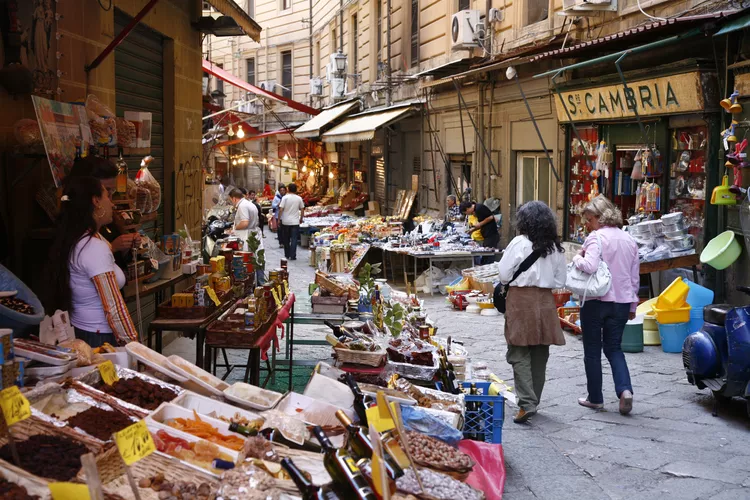Helpful Italian Words and Phrases for Your Trip to Italy
It’s a good idea to learn a few basic Italian words and phrases before you travel to Italy. Although English is spoken in most touristic parts of Italy, knowing a little bit of Italian will help you have a better experience and make you feel more comfortable while in Italy. Moreover, even if your Italian is not perfect, you’ll find that most Italians appreciate your efforts to learn and speak their language.
Useful Phrases
Here are some basic phrases and courtesies to help you get by in Italy:
- Greetings. Know how to say “buongiorno” (bwohn-JOR-noh) for “good morning” or “good day”; “buonasera” (BWOH-nah-SAY-ra) for “good evening”; and “arrivederci” (ah-ree-vay-DEHR-chee) for goodbye (obligatory when you leave a shop or restaurant).
- Disclosure. Say up front, “Non parlo italiano” (nohn PAR-loh ee-tah-leeAH-non) for “I don’t speak Italian.” A good follow-up question: “Parla inglese?” (PAR-lah een-GLAY-zay) Do you speak English?
- Courtesy. Please, thank you, and you’re welcome are the most important phrases in any language. The Italian phrases are “per favore” (pehr fah-VOH-ray); “grazie” (GRAHT-zee-ay) and “prego” (PRAY-goh).
- Personal preferences. Wherever you go, someone will ask, “Va bene?” (VAH BAY-ne): “Is it going well? Is everything okay?” If it is, you can reply “Si, bene!” (see BEHN-nay) for yes, all is well. “Mi piace” (mee pee-AH-chay) means “I like”; “non mi piace” means “I don’t like it.”
- Prices. Bottom line, you’re going to be buying food, tickets, souvenirs, and other irresistible things. Before you do, you’ll want to know, “Quanto costa?” (KWAHN-toh KOH-sta): How much does it cost?
Basic Vocabulary for Travelers
Learning some basic vocabulary and questions will likely garner smiles and friendlier service in hotels, restaurants, and shops.
- Yes: Sì
- No: No
- Excuse me: Mi scusi (when you need to ask a question, directions, etc.)
- Pardon me: Permesso (when you need to pass by, enter someone’s home, etc.)
- I’m sorry: Mi dispiace (when you’ve made an error, or don’t have small bills, etc.)
- I’m sorry: Scusa (when you bump into someone, roll your luggage over their foot, etc.)
- Some information, please: Un informazione, per favore
- I don’t understand: Non capisco
Exchanging Pleasantries
- What’s your name?: Come si chiama?
- My name is ___: Mi Chiamo ___
- I am from the United States/England: Vengo dagli Stati Uniti/dall’Inghilterra
- How’s it going?: Come va?
- How are you?: Come sta?
Dining Out
- Do you have a table for 2/4/6 people?: Hai un tavolo per due/quattro/sei persone?
- What do you recommend?: Che cosa mi consiglia?
- I am vegetarian: Sono vegetariano
- A bottle of the house white/red wine please: Una bottiglia del vino rosso/bianco della casa per favore
- The check, please: Il conto, per favore
- Is the tip included?: Il servizio è incluso?
Asking Directions
- Where is the subway?: Dov’è la metro?
- Where is the train station?: Dov’è la stazione?
- Where is the museum?: Dov’è il museo?
The Necessities
- Where is the bathroom?: Dov’è la toilette?
- Can you call me a taxi?: Puoi chiamarmi un taxi?
- Can you help me?: Mi può aiutare?
- Please call an ambulance!: Per favore, chiami un’ambulanza!
- Please call the police!: Per favore chiama la polizia!
- Please call a doctor: Per favore, chiami un dottore
Hopefully, you’ll never have occasion to use those last three or four phrases!
Buon viaggio! Have a good trip.




